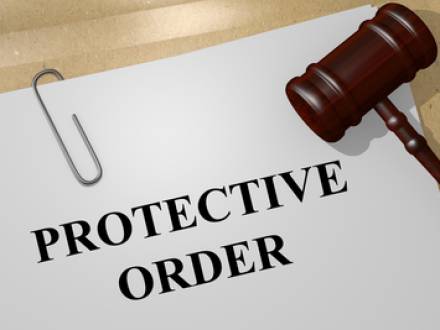What Are the Consequences of Violating an Illinois Protective Order?
 Although many people believe that violating an Illinois Order of Protection is not that big of a deal, in fact, it is a criminal charge that can bring jail time, heavy fines, and long-term consequences. While some people are aware they are violating an order of protection and are too frustrated or angry to care about the consequences, others may have simply misunderstood the scope of the order of protection.
Although many people believe that violating an Illinois Order of Protection is not that big of a deal, in fact, it is a criminal charge that can bring jail time, heavy fines, and long-term consequences. While some people are aware they are violating an order of protection and are too frustrated or angry to care about the consequences, others may have simply misunderstood the scope of the order of protection.
Something as simple as an accidental encounter, a text message apologizing to the alleged victim, or a social media post can potentially trigger an arrest. Illinois courts treat protective orders as court mandates rather than personal agreements. Any breach of an order of protection can lead to criminal contempt or misdemeanor or felony prosecution under 720 ILCS 5/12-3.4.
If you are charged with violating an order of protection, you must understand how serious the violation may be and what defenses exist. Consulting with a knowledgeable Will County, IL criminal defense lawyer early in the process can significantly increase your chances of a favorable outcome.
What Is an Illinois Order of Protection?
An order of protection is designed to protect individuals from abuse, harassment, or stalking, and is issued under the Illinois Domestic Violence Act (750 ILCS 60/101). An Emergency Order of Protection lasts 14-21 days, and is issued quickly without notice to the opposing party, usually when the police and judge believe there is an imminent threat to the victim.
An Interim Order of Protection can last up to 30 days and is issued after a limited hearing. A Plenary Order of Protection can last up to two years and is issued after a full hearing. Common restrictions in any of these orders include no contact, stay-away zones, firearm surrender, and communication bans.
What Constitutes a Violation of an Illinois Order of Protection?
Any willful act that disobeys the terms of the order can constitute a violation of an order of protection. These violations may include:
- Sending a text or online message to the alleged victim
- Physical approach to the alleged victim
- Showing up at the alleged victim’s home, work, or school
- Failing to surrender firearms
- Failing to vacate premises after being ordered to do so
- Asking a third party to contact the protected person
What are the Criminal Penalties for Violating an Order of Protection?
A first-time violation of an order of protection is a Class A misdemeanor. The penalties include up to 364 days in jail and a $2,500 fine. A second or subsequent offense is a Class 4 felony with penalties of between one and three years in prison and the possibility of extended probation or restitution.
If the violation involves violence, stalking, or the presence of children, felony enhancements apply. The court may also issue contempt sanctions, extend the order, or impose electronic monitoring. Collateral consequences can include mandatory entry into the Illinois Order Registry, which is visible to law enforcement, difficulty securing employment or housing, and negative impacts on child custody, visitation rights, and divorce proceedings.
Are There Defenses to Charges of Violating an Illinois Order of Protection?
A defense attorney may use one of the following defenses when a defendant is facing a violation of an order of protection charge:
- Lack of intent or knowledge (the defendant was unclear on the boundaries)
- A brief, unavoidable encounter in a public place
- False allegations or a misunderstanding
- The order was not properly served or was outside the court's authority
- The conditions are overly broad in their restrictions on lawful movement and speech.
Contact a Joliet, IL Order of Protection Violation Attorney
If you have been accused of violating an order of protection in Illinois, the sooner you can speak to an experienced Will County, IL criminal defense lawyer from the Law Office of Eric J. Blatti, P.C., the better. Attorney Blatti is local to the Joliet area, has experience working as a public defender, and has good relationships with attorneys and judges – all of which work to your benefit. Call 815-744-2500 to schedule your free consultation.







